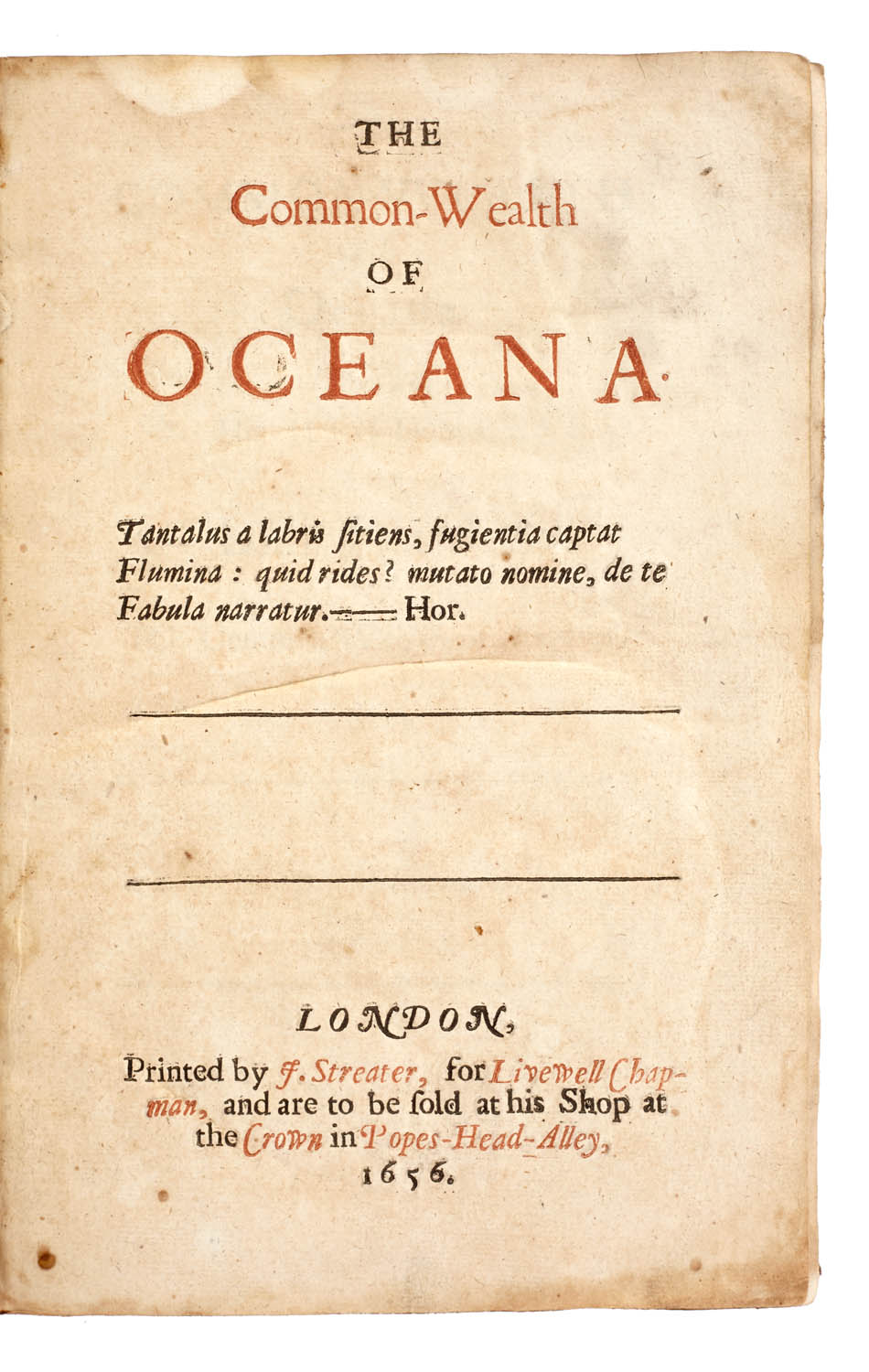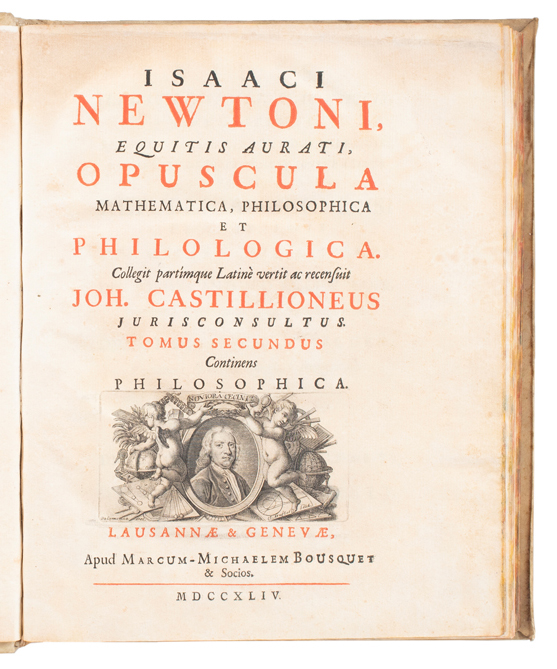


[HARRINGTON, James.]
The commonwealth of Oceana.
London, printed for J. Streater, 1656.
Small folio, pp. [xii], 1–239, [1, blank], 255–286, 189–210, [1], [1, blank]; title printed in red and black; light browning, faint damp-stain in the upper margin, but a good, honest copy in full calf, worn, joints split but holding; armorial bookplate of Matthew Bell; from the library of the bibliographer Graham Pollard, with his printed exlibris to the verso of the front board.
First edition, first issue. ‘Oceana presents Harrington’s vision of the ideal state: an aristocracy of limited, balanced powers. Harrington believed that democracy is most stable where a strong middle class exists and that revolution is a consequence of the separation of economic and political power. These beliefs particularly influenced U.S. Pres. Thomas Jefferson’s democratic agrarianism … His ideas are said to have been partly responsible for such U.S. political developments as written constitutions, bicameral legislatures, and the indirect election of the president’ (Encyclopedia Britannica).
There are two variants, of which ours (‘printed by J. Streater’) is the first, the second being ‘printed for D. Pakeman’. The different issues were the result of political interference during the printing of the book. The ‘Epistle to the reader’ says that the copy was ‘dispersed into three presses’ and the errata list notes that a ‘spanell questing hath sprung my book of one presse into two other’ (this is readily apparent from the three distinct typographical sequences that characterise the book: one printer produced quires [-]–Ii, the second quires Kk–Nn, the third Pp–Rr). As Streater and Chapman were radicals opposed to the Cromwellian protectorate, it is likely that it was Oceana’s printer and publisher, rather than its author, that prompted the government’s attentions, and that this is why distribution was at some point entrusted to Daniel Pakeman, a non-controversial publisher mainly of law books. ‘But Oceana is one of those works that transcend their immediate context. The book’s historical significance is that it marks a moment of paradigmatic breakthrough, a major revision of English political theory and history in the light of concepts drawn from civic humanism and Machiavellian republicanism’ (Pocock, Machiavellian moment p. 384).
Oceana ‘is of the greatest importance: in general terms as showing how it was possible to rethink the entire institutions of an extensive nation-state along republican lines, and to write a detailed constitution for it; and in relation to the Roman Republic as being by far the most detailed – if sometimes erratic – use of its institutions (far more detailed than by Machiavelli) to construct a feasible model for the present’ (Millar, Roman republic in political thought pp. 95–6). ‘A thinly disguised account of England and gives an imaginary account of how its dictator set up a utopian commonwealth. It is no chimerical state which Harrington described, however, but a social and political organization intended to be immediately applicable to the England of his day ... The chief importance of Harrington’s utopias is their clear enunciation of the principle that the economic factor in a state determines its government. … Oceana and Harrington’s other accounts are not utopias in the literary sense of the term. They are magnified constitutions intended as solutions for actual problems’ (Negley, The Quest for Utopia, pp. 380-383).

